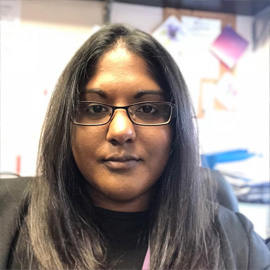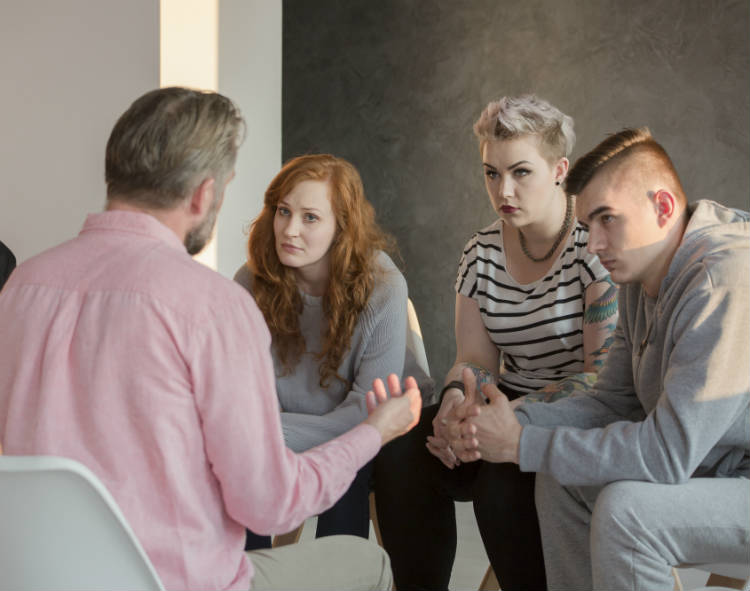Opioid rehab

Written by:
Last Updated:
May 8th, 2024
Opiates and opioids (synthetic drugs that act like opioids – we will use the two terms interchangeably) are some of the most commonly abused drugs in the UK. Though they are often prescribed by doctors to treat pain, they can be very addictive and over the last few years, Sanctuary Lodge has seen increasing numbers of people seeking opioid rehab for both prescription and illegal opioid drugs. We know that seeking help for opioid recovery treatment can be scary but we have helped many people break the cycle and start brand new lives. Unfortunately, only you can take the most important first step and reach out but once you do, we will be with you every step of the way.
What is opioid rehab?
Opiate rehab is the process of treating an opioid addiction under the care of recovery experts rather than trying to quit on your own. It usually involves a period of opioid detox (to get the drugs out of your system) followed by therapy and other support to help you stay drug-free in the long term.
There are two main options for undergoing opioid rehab; inpatient and outpatient.
Inpatient opioid rehab
Inpatient opioid rehab is when you live at the rehab facility during your treatment. This means you have 24/hour access to care and support which can be vital in early recovery when cravings and temptations are at their strongest. It also allows you to focus solely on your recovery without any distractions from your everyday life.
Inpatient opioid rehab is usually regarded as the most effective form of treatment because it provides a holistic recovery environment with no access to opioids and no exposure to people or situations which could trigger a relapse. It also gives you the best chance to learn new skills and strategies for dealing with opioid cravings and triggers because inpatient opioid treatment programmes have a wider range of different therapies.
Outpatient opioid rehab
Outpatient opioid rehab is when you live at home and attend weekly group therapy sessions. While this can seem like a more convenient opioid rehab option, it is usually less effective because it is not an immersive environment for recovery and you are still exposed to opioid triggers in your everyday life.
Inpatient opioid rehab at Sanctuary Lodge

Sanctuary Lodge provides comprehensive opioid rehab programmes with a diverse range of different therapies and treatments. The main goals of these are to:
- Help you identify the underlying causes of your condition
- Learn new ways to manage, overcome or cope with these causes without using opioids
- To equip you with the tools and techniques you need to prevent relapse and achieve long-term recovery
Our opioid rehab programmes include:
One-to-one therapy – At Sanctuary Lodge, you will have weekly individual therapy sessions with a therapist who has been through recovery themselves. They will get to know you and your unique situation and help you to address the underlying causes of your opioid use. Many of our clients develop a strong bond with their therapist and find these sessions to be invaluable in their recovery.
Group therapy – Group therapy sessions are an important part of opioid rehab as they provide support and allow you to share your experiences with others who are going through the same thing. These can be incredibly powerful and help break the feelings of isolation that your condition can create.
Cognitive behavioural therapy (CBT) – CBT is a type of therapy which helps you to identify and change negative thought patterns and behaviours. It is often used in opioid rehab as it can be very effective in helping to break the cycle of your condition and build self-esteem.
Dialectical behaviour therapy (DBT) – DBT is a type of therapy which helps you to understand and manage your emotions. It can be very helpful in opioid rehab as it can help you to deal with difficult emotions without resorting to drug use.
Family therapy – Opioid abuse does not just affect you but also your family and friends. Family therapy sessions are an important part of opioid rehab as they help to repair and rebuild damaged relationships. It can be difficult to talk about your problems with your family but these sessions provide a safe space for honest and open communication which can be vital in recovery.
Yoga therapy – Yoga therapy uses yoga to promote physical and mental well-being. Going through opioid rehab can be very tough on your body and mind so yoga therapy can be a great way to help you relax and rejuvenate.
Meditation techniques – Meditation can be very important both during your time in opioid rehab and afterwards in your ongoing recovery. It can help to still the mind, promote relaxation and provide a sense of calm during difficult moments.
Which types of opioid rehab does Sanctuary Lodge provide?
There are a number of opioids that require opioid rehab which Sanctuary Lodge provides. These include:
Tips for a successful stay in opioid rehab
Opioid rehab can be a challenging time but there are things you can do to make it more successful. Here are some tips to help you make the most out of your time in rehab:
Get to know the staff and other clients
Forming positive relationships with the staff and other clients at opioid rehab is important. These relationships can provide support and encouragement during difficult times and also help you to learn from the experiences of others. At Sanctuary Lodge, we provide group therapy to all our clients and also non-curricular activities to help everyone bond and form friendships. These include TV evenings, board games and quiz nights.
Trust the opioid rehab process
It can be difficult to let go and trust the opioid rehab process but it’s important to remember that the staff are there to help you. Your condition will try to convince you that you are wasting your time or that opioid rehab doesn’t work but these are just lies. The opioid rehab process has been proven to be effective time and time again so trust that it will work for you too.
Involve loved ones in your recovery
The support of friends and family can be invaluable in giving you the strength and motivation to complete opioid rehab. At Sanctuary Lodge, we offer family therapy sessions to help loved ones understand your condition and how they can support you in recovery. This helps to repair any damage done to your relationships as a result of your opioid abuse and also provides a space to talk openly with your loved ones about your condition.
Opioid relapse prevention
The main goal of our opioid rehab programme is to prepare you for life in recovery. While relapse is common and doesn’t mean that you have failed, it’s important to do everything you can to avoid it. Here are some tips:
- Understand your triggers and how to avoid them
- Stay in touch with your support network
- Attend regular aftercare sessions
- Start new, healthy hobbies
During your inpatient stay, you will learn many different techniques to deal with opioid cravings to reduce the risk of relapse. In addition, all our clients who complete our opioid rehab programme get access to our aftercare programme beyond treatment. Attending these free group therapy sessions allows you to continue benefiting from professional and peer support. As part of UKAT, we also offer an Alumni programme, where clients can benefit from ongoing involvement with our centre, as well as connections with their peers in recovery.
What to do next
There is no time like the present to get started on your road to recovery. Get in touch with Sanctuary Lodge today to begin your opioid rehab journey. Our admissions team will explain everything you need to know about our opioid rehabilitation programmes and answer any questions you may have.
Frequently asked questions
- Is acquiring and using opiates a constant preoccupation?
- Do opiates interfere with my work, school or family life?
- Do I continue to use opiates despite the negative consequences?
- Have I built up a tolerance to opiates and now need higher doses to achieve the same effects?
- Do I suffer from withdrawal symptoms when I try to stop using opiates?
If you have answered yes to any of the above, then it’s likely that you need opioid rehab. Get in touch with Sanctuary Lodge today to learn more about your options.













